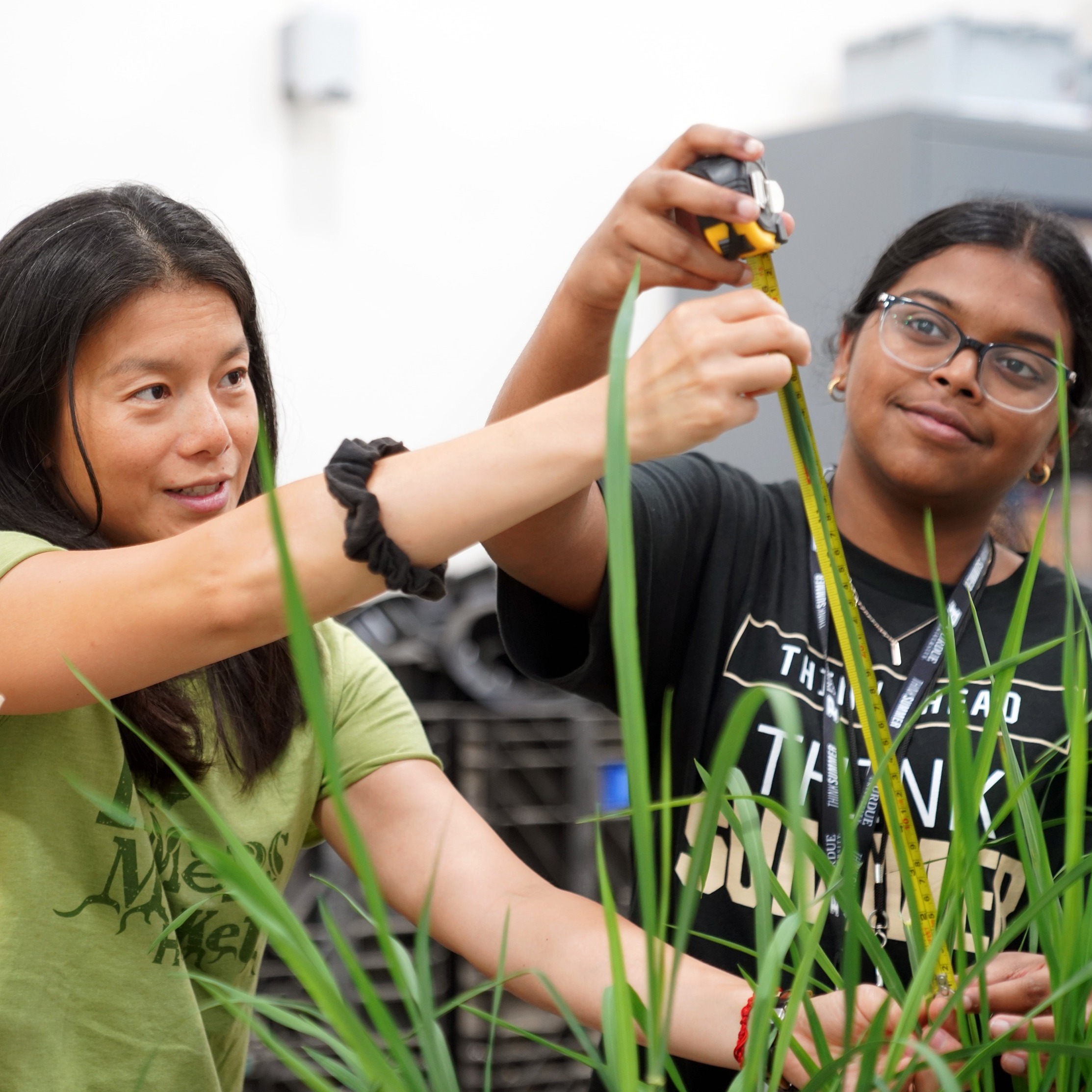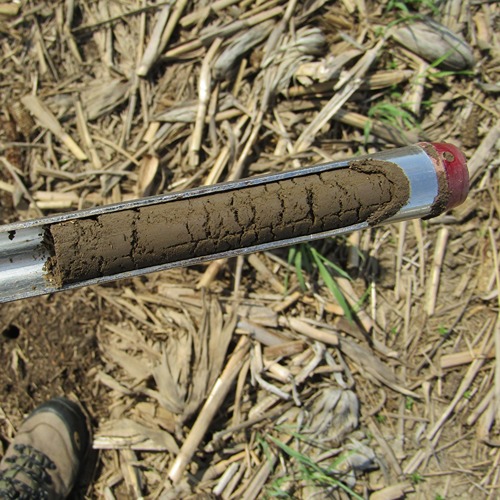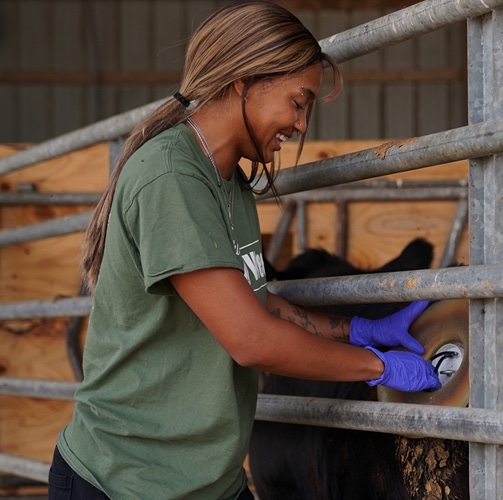Abby Gress never thought she’d attend a large university, didn’t envision herself assisting in prescription drug research, and certainly never imagined she’d do all this under the umbrella of agriculture. Reflecting on all of this leads Gress to impart the most important thing she learned during her time at Purdue University and the College of Agriculture: Approach everything with an open mind, especially college.
Gress, a biochemistry major graduating this May, worried about attending a larger university because she felt it might be easy to get lost and difficult to find academic support and resources. Nothing, she said, could be further from the reality of her four years at Purdue.
“I think Purdue does large university well,” she continued. “It’s easy for students to get lost in a place like this but there are so many resources in place here you’d actually have to try to fall through the cracks. And in the College of Agriculture, the faculty are just as invested in their research as they are their students.”
As a pre-med student, Gress thought a major from the Department of Biochemistry, housed within the College of Agriculture, was an unconventional choice but she was attracted by the opportunity for research and the passion of the faculty in the department and the college. Gress spent several years working in Scott Briggs’ lab on the development of anti-fungal drugs. Her research into pharmaceuticals led her away from her initial goal of becoming a doctor and towards a future that combines her passion for research and helping others.
In the fall, Gress will begin her graduate studies at the University of Minnesota’s Microbiology Immunology and Cancer Biology Program where she will focus on developing cancer-fighting drugs. Gress credits the college for widening her horizons and demonstrating the myriad of ways to positively impact people’s lives that don’t involve becoming a doctor.
“Ultimately, the focus of agriculture is getting people what they need to survive and to thrive and that’s what I’ll be fighting for too,” Gress said. She added she’s glad her pre-med status didn’t give her tunnel vision, preventing her from hearing the advice of peers, mentors, and her own inner voice.
But keeping an open mind doesn’t just apply to academics, extracurricular activities are equally important when exploring one’s interests and finding supportive peers and mentors. “There are so many opportunities at Purdue – take them,” Gress said. “And if it doesn’t fit or you don’t like it that’s OK. Actually, that’s great. Try something else. Getting to interact with so many other students and sharing in their ambitions and successes has made me more appreciative of my peers and my university.”
Gress added that after a short time in college, she found her passion: Purdue. As an Agriculture Ambassador to the college, she’s helped recruit other students by sharing her story and insights. She likes to tell students that agriculture touches everything in their daily lives, whether they know it or not. She thinks talking about the breadth of research taking place within the college will help dispel some notions that agricultural research is just about corn, soybeans, and animal husbandry.
“I’ll always remember this talk given by Dean Plaut where she discussed the work she used to do with NASA,” Gress continued. “She was describing one of her projects, designing a water dispenser for mice in space to use in zero gravity, which is apparently quite challenging. And in that moment it clicked. Agriculture really is everywhere.”





